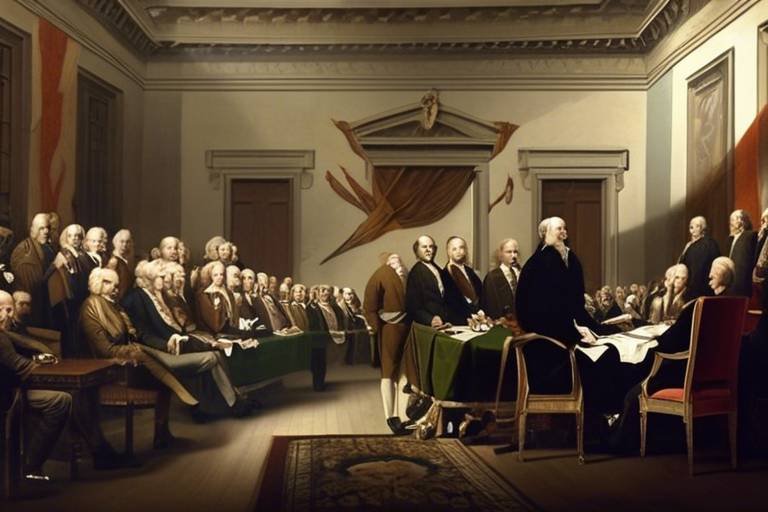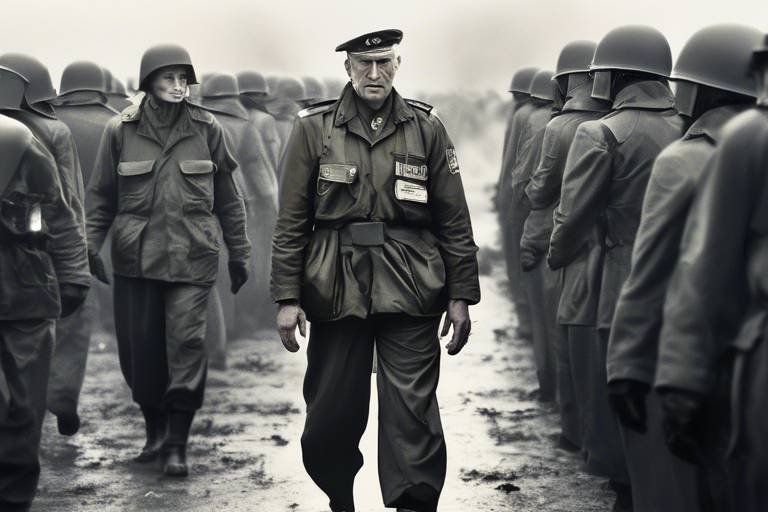Political Philosophy for Beginners: Key Concepts and Theories
Welcome to the fascinating world of political philosophy! If you've ever wondered about the **nature of power**, the essence of **justice**, or how governance impacts our daily lives, you're in the right place. Political philosophy is not just a dusty academic subject; it’s a vibrant field that helps us understand the principles that guide our societies. It examines the fundamental questions that shape our political landscape, such as: What is the role of the government? What rights do individuals possess? And how should power be distributed among citizens?
At its core, political philosophy seeks to answer these pivotal questions by exploring various theories and ideas that have emerged throughout history. From ancient thinkers like **Plato** and **Aristotle** to modern theorists like **John Locke**, each philosopher has contributed unique insights that continue to resonate today. This article will walk you through some of these key concepts and theories, providing a solid foundation for anyone interested in diving deeper into political thought.
Political philosophy is essential for understanding the **framework of our societies**. It allows us to critically analyze the systems of governance that affect our lives, from the laws we abide by to the rights we enjoy. By studying political philosophy, we not only gain knowledge but also develop the ability to engage in meaningful discussions about our civic responsibilities and the ethical implications of political decisions.
As we navigate through the complexities of political thought, you'll discover that these theories are not just historical artifacts; they are alive and relevant. They challenge us to think about our own beliefs and the systems we live under. So, whether you’re a student, a curious mind, or someone looking to make sense of the political chaos around us, understanding these concepts will empower you to engage more thoughtfully in civic life.
Let’s embark on this journey together and explore the rich tapestry of political philosophy. We’ll uncover the ideas of key theorists, delve into modern ideologies, and ultimately equip you with the tools to understand and participate in the political discourse of our time.
- What is the main focus of political philosophy?
Political philosophy primarily examines questions related to government, justice, rights, and the role of individuals in society. - Who are some key figures in political philosophy?
Notable philosophers include Plato, Aristotle, Machiavelli, and John Locke, each contributing unique perspectives on governance and ethics. - How does political philosophy relate to modern politics?
Political philosophy provides the foundational theories that inform contemporary political ideologies and debates, helping us understand current governance issues.
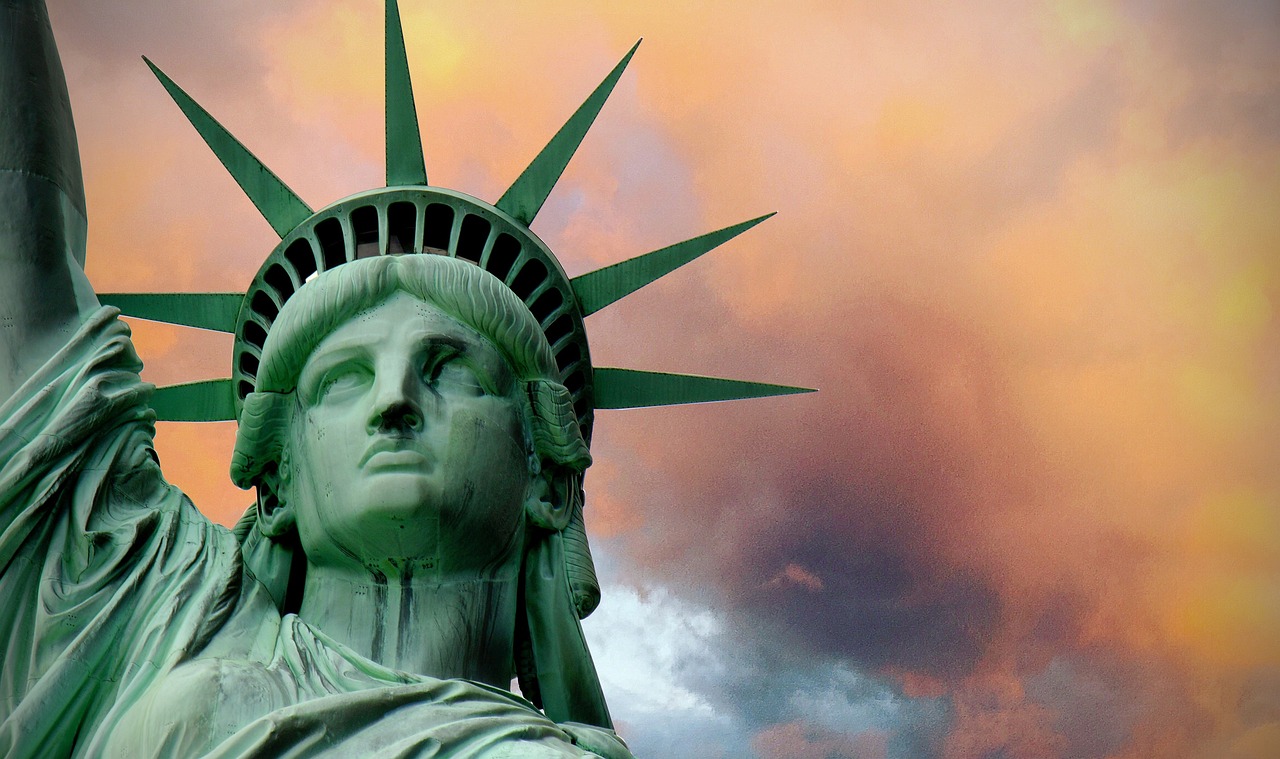
What is Political Philosophy?
Political philosophy is like the compass that guides us through the complex landscape of governance, justice, and societal roles. It’s not just about dusty old books or theories that live in ivory towers; it’s about grappling with the very essence of what it means to live together in a community. Have you ever wondered why we have governments or what makes laws just? Political philosophy dives deep into these questions, examining the fundamental principles that underpin our political systems.
At its core, political philosophy seeks to answer several key questions:
- What is the nature of justice? Is it merely a construct, or does it exist independently of human interpretation?
- What rights do individuals possess? Are these rights inherent, or are they granted by governing bodies?
- What is the role of the state? Should it be a powerful entity that regulates all aspects of life, or a limited one that allows for personal freedoms?
- How should power be distributed? Is it best held by a few, or should it be more democratically shared among the populace?
These inquiries are not just academic; they resonate in our everyday lives. From the laws we follow to the rights we cherish, the principles of political philosophy shape our understanding of civic responsibilities and our roles as citizens. Imagine navigating a ship without a map—political philosophy provides that map, helping us chart a course through the turbulent waters of political discourse.
Political philosophy also examines the relationship between the individual and the state. It raises questions about authority and autonomy, pushing us to consider how much power a government should wield over its citizens. Are we willing to sacrifice some freedoms for the sake of security? Or should we fiercely protect our individual rights at all costs? These dilemmas are not new; they have been debated for centuries and continue to be relevant in today’s political climate.
Moreover, political philosophy is not a monolith; it encompasses a wide range of theories and ideas. From the utopian visions of philosophers like Plato to the pragmatic approaches of Machiavelli, the diversity of thought enriches our understanding of governance. Each theory offers unique insights into the human condition and the complexities of societal organization, making the study of political philosophy an ever-evolving field.
In essence, political philosophy is a vital tool for anyone looking to understand the intricacies of power and governance. By engaging with its concepts, we can better navigate the challenges of modern society and advocate for a political landscape that reflects our collective values and aspirations.

Key Theorists in Political Philosophy
Political philosophy has been shaped by a myriad of thinkers whose ideas have laid the groundwork for modern governance and ethics. Understanding their contributions is essential for grasping the complexities of political thought. Among these influential figures, Plato, Aristotle, Machiavelli, and John Locke stand out as titans whose theories continue to resonate today. Each of these philosophers approached questions of power, justice, and governance from unique perspectives, providing frameworks that help us navigate contemporary political landscapes.
Let's dive deeper into their philosophies. Plato, often considered the father of Western philosophy, introduced the idea of the ideal state where justice is achieved through a hierarchy of roles based on individual abilities. He believed that a ruler should be a philosopher-king, someone who possesses wisdom and virtue, thus ensuring that governance is aligned with the greater good. In contrast, Aristotle, his student, took a more pragmatic approach. He emphasized the role of the state in enabling citizens to live the good life. For Aristotle, the best government is one that balances the interests of the few and the many, advocating for a mixed government that combines elements of democracy and oligarchy.
Then we have Machiavelli, who introduced a starkly different perspective. His work, particularly in "The Prince," is often viewed as a manual for political realism. Machiavelli argued that the pursuit of power often requires ruthless strategies, suggesting that the ends justify the means. This perspective challenges the idealistic notions of governance, prompting us to consider the often harsh realities that leaders face in maintaining authority and stability.
Lastly, we cannot overlook John Locke, whose social contract theory revolutionized political thought. Locke posited that governments are formed through the consent of the governed, fundamentally linking authority to the protection of natural rights—life, liberty, and property. His ideas laid the groundwork for modern democratic principles and have profoundly influenced the development of liberal political philosophy.
The contributions of these thinkers are not merely historical; they continue to spark debates and discussions about the nature of power and justice in our society. To better understand their ideas, the following table summarizes their main contributions and philosophies:
| Theorist | Main Contribution | Key Ideas |
|---|---|---|
| Plato | Ideal State and Justice | Philosopher-kings, virtue, hierarchy of roles |
| Aristotle | Political Theory and the Good Life | Mixed government, civic participation, balance of interests |
| Machiavelli | Political Realism | Power dynamics, ends justify the means, pragmatic governance |
| John Locke | Social Contract Theory | Consent of the governed, natural rights, limited government |
In conclusion, the exploration of these key theorists not only enriches our understanding of political philosophy but also equips us with the tools to critically analyze current political systems and ideologies. Their legacies remind us that the questions of power, justice, and governance are as relevant today as they were in ancient times.
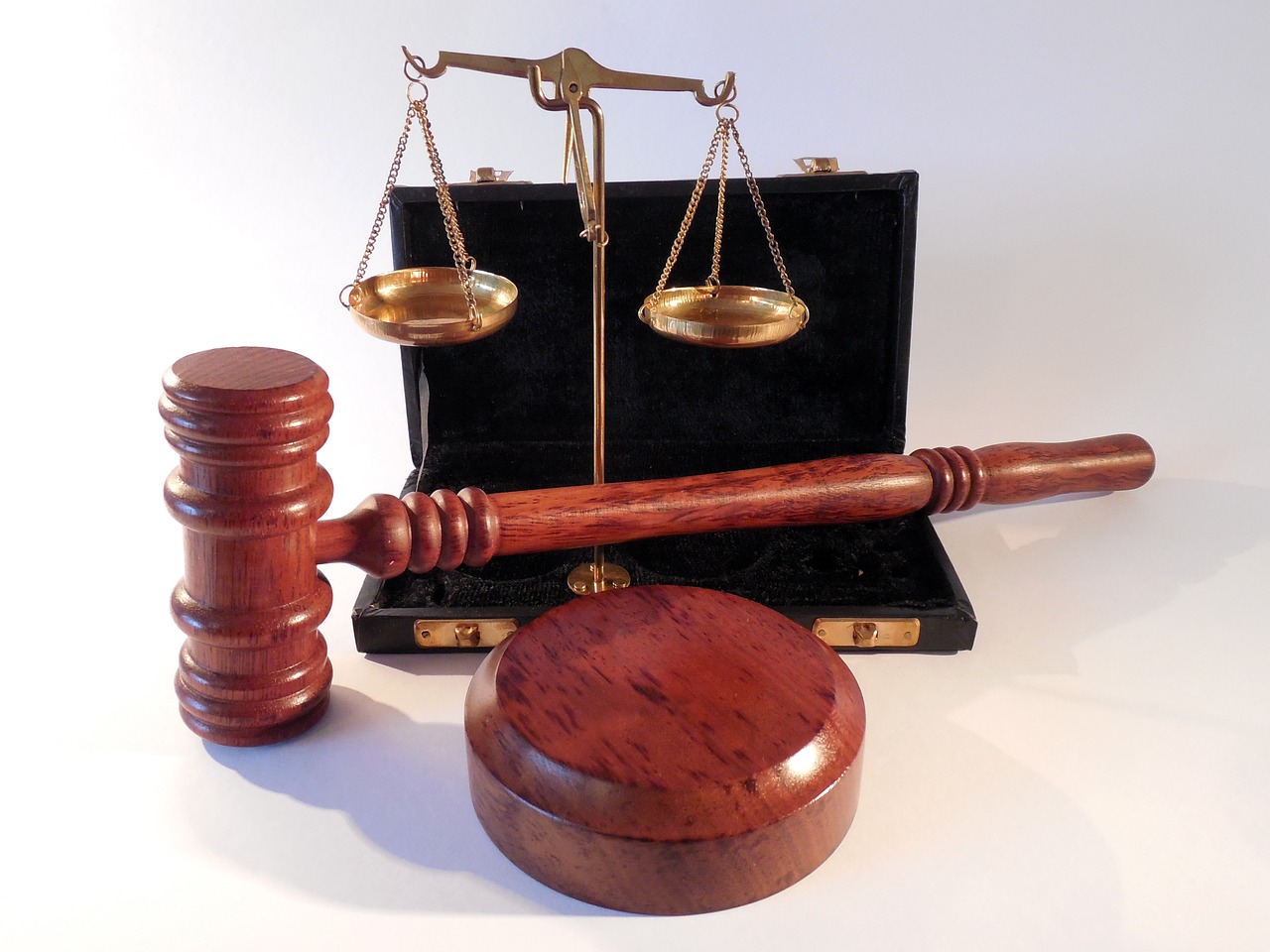
Plato's Theory of Justice
Plato's theory of justice is a cornerstone of his philosophical thought, reflecting his vision of an ideal society. In his work, particularly in "The Republic," Plato presents a profound inquiry into what it means to be just. He argues that justice is not merely a social contract or a legalistic framework, but rather a fundamental virtue that aligns with the essence of the human soul. According to Plato, a just society is one where individuals perform their roles according to their natural abilities and knowledge, creating a harmonious structure where everyone contributes to the common good.
At the heart of Plato's theory is the concept of the "tripartite soul," which he divides into three distinct parts: the rational, the spirited, and the appetitive. Each part corresponds to different societal roles:
- Rulers (Philosopher-Kings): Those who possess wisdom and rationality, tasked with governance.
- Warriors: Individuals driven by courage and spirit, responsible for defending the state.
- Producers: The majority, including farmers and artisans, who fulfill the material needs of society.
Plato argues that justice occurs when each class performs its role without overstepping its boundaries. For him, this division ensures that the state functions smoothly, akin to a well-tuned machine. Just as a car needs its engine, wheels, and body to work in unison, society requires each class to operate in harmony to achieve the greater good.
Moreover, Plato introduces the idea of the "Forms," particularly the Form of the Good, which represents the ultimate truth and reality. He posits that only those who grasp this Form can govern justly. This notion elevates the role of the philosopher-king, who, through education and enlightenment, understands the essence of justice and can lead society towards it. In contrast, those who are ignorant of the Form of the Good may lead society into chaos and injustice, highlighting the importance of knowledge in governance.
In contemporary discussions, Plato's theory of justice continues to resonate, especially when examining the ethical foundations of political authority. His insistence on the moral responsibility of rulers raises critical questions about leadership and the qualities necessary for just governance. Are today's leaders equipped with the wisdom to make decisions that serve the common good? Or are they, like those in Plato's allegory of the cave, merely shadow puppets, unaware of the deeper truths of justice?
Ultimately, Plato’s vision offers a framework for contemplating the nature of justice in our own societies. It challenges us to reflect on whether our political structures allow for the flourishing of virtue and whether our leaders genuinely act in the best interest of their citizens. In a world often marked by division and inequality, Plato's insights remind us of the enduring pursuit of justice as a collective endeavor.

Aristotle's Political Theory
Aristotle, often hailed as the father of political science, presents a captivating view of politics that intertwines ethics and governance. His approach is not merely theoretical; rather, it is deeply practical, focusing on the *good life* and how the state can facilitate its achievement for its citizens. Aristotle believed that the purpose of the state is to promote the well-being of its people, arguing that a just society is one where individuals can live virtuously and fulfill their potential. This leads us to consider the essential question: what constitutes a good life, and how can a government help realize it?
In Aristotle's eyes, the ideal state is one that encourages civic participation and fosters a sense of community among its citizens. He proposed a mixed government model that combines elements of monarchy, aristocracy, and democracy, believing that each system has its strengths and weaknesses. By blending these forms, he argued that a more stable and just society could emerge. This perspective highlights the importance of balance in governance, much like a well-tuned orchestra where each instrument plays its part harmoniously.
Aristotle categorized governments based on who rules and for whose benefit. He distinguished between good and bad forms of government, as seen in the following table:
| Type of Government | Good Form | Bad Form |
|---|---|---|
| One | Monarchy | Tyranny |
| Few | Aristocracy | Oligarchy |
| Many | Polity | Democracy |
This classification underscores Aristotle's belief that governance should serve the common good rather than the interests of a select few. He emphasized that a true democracy is not merely a system of majority rule but a form of governance that ensures the welfare of all citizens. In this sense, Aristotle's political theory resonates with contemporary discussions about equity and representation in democratic societies.
Moreover, Aristotle argued that education plays a crucial role in shaping virtuous citizens. He believed that a well-educated populace is essential for the functioning of a good government. By nurturing moral character and critical thinking, citizens are better equipped to participate actively in political life. This idea prompts us to reflect on our educational systems today: are they fostering the kind of engaged and informed citizens necessary for a thriving democracy?
In summary, Aristotle's political theory is a rich tapestry of ideas that continues to influence modern political thought. His emphasis on the importance of virtue, community, and balanced governance serves as a guiding light for understanding the complexities of political life. As we navigate the challenges of contemporary governance, Aristotle's insights remind us that the ultimate goal of politics should be the promotion of the good life for all.
- What is the main focus of Aristotle's political theory?
Aristotle's political theory focuses on achieving the good life through a balanced government that promotes civic participation and virtue among its citizens. - How does Aristotle categorize different forms of government?
He categorizes governments based on who rules (one, few, or many) and for whose benefit (good or bad forms), creating a framework that highlights the strengths and weaknesses of each system. - Why is education important in Aristotle's political theory?
Education is vital as it cultivates virtuous citizens who can actively engage in political life and contribute to the common good.

good life
This article introduces fundamental concepts and theories of political philosophy, providing insights into the nature of power, justice, and governance, essential for understanding political thought and its implications in contemporary society.
Political philosophy examines the fundamental questions about government, justice, rights, and the role of individuals in society. It explores theories that guide political systems and informs our understanding of civic responsibilities.
This section highlights influential political philosophers such as Plato, Aristotle, Machiavelli, and John Locke. Their ideas shaped modern political thought and continue to influence contemporary discussions about governance and ethics.
Plato's concept of justice emphasizes the importance of virtue and the ideal state. He argues that a just society is one where individuals fulfill their roles based on their abilities and knowledge.
Aristotle's political philosophy focuses on the idea of the and the role of the state in achieving it. He believed that the good life is not merely about personal happiness but involves living in accordance with virtue and reason. For Aristotle, the state plays a crucial role in facilitating this good life by creating an environment where citizens can thrive. He advocates for a mixed government, which combines elements of democracy, oligarchy, and monarchy, as the best way to achieve a balanced society. This mixed structure helps ensure that no single group can dominate, thus promoting the common good.
Aristotle also emphasizes the significance of civic participation. He argues that individuals must be actively involved in their governance to cultivate virtue and achieve the good life. This concept is akin to a gardener tending to a garden; just as plants require care and attention to flourish, citizens must engage with their political community to nurture a healthy society.
Machiavelli's pragmatic approach to politics emphasizes the importance of power and the often harsh realities of political life. His work challenges idealistic views and promotes a more realistic understanding of political dynamics.
Locke's social contract theory posits that governments derive their authority from the consent of the governed. His ideas on natural rights and limited government have significantly influenced democratic thought.
This section explores contemporary political ideologies such as liberalism, conservatism, socialism, and feminism. Each ideology presents distinct views on governance, rights, and the role of the state in society.
Liberalism emphasizes the protection of individual rights and freedoms. It advocates for limited government intervention and the importance of democratic processes in ensuring personal liberties.
Socialism focuses on reducing economic inequality through collective ownership and social welfare programs. It challenges capitalist structures and promotes the idea that wealth should be distributed more equitably among citizens.
- What is the main focus of political philosophy? Political philosophy primarily focuses on questions regarding government, justice, rights, and the role of individuals in society.
- Who are some key theorists in political philosophy? Influential theorists include Plato, Aristotle, Machiavelli, and John Locke, each contributing unique perspectives on governance and ethics.
- What does Aristotle mean by the "good life"? For Aristotle, the good life is achieved through virtuous living and civic participation, where individuals contribute to the common good of society.
- How does Machiavelli's view differ from more idealistic political theories? Machiavelli's realist perspective emphasizes the importance of power dynamics and the often harsh realities of political life, contrasting with more utopian visions of governance.

and the role of the state in achieving it. He advocates for a mixed government and the importance of civic participation.
This article introduces fundamental concepts and theories of political philosophy, providing insights into the nature of power, justice, and governance, essential for understanding political thought and its implications in contemporary society.
Political philosophy examines the fundamental questions about government, justice, rights, and the role of individuals in society. It explores theories that guide political systems and informs our understanding of civic responsibilities.
This section highlights influential political philosophers such as Plato, Aristotle, Machiavelli, and John Locke. Their ideas shaped modern political thought and continue to influence contemporary discussions about governance and ethics.
Plato's concept of justice emphasizes the importance of virtue and the ideal state. He argues that a just society is one where individuals fulfill their roles based on their abilities and knowledge.
Aristotle's political philosophy focuses on the idea of the good life and the role of the state in achieving it. He advocates for a mixed government that combines elements of democracy, oligarchy, and monarchy, believing that this blend helps to balance the interests of different social classes. In his view, the state is not merely a mechanism for governance; it is a crucial player in fostering civic virtue and ensuring that citizens can achieve their fullest potential.
Aristotle posits that the state should promote the common good, and this can only be achieved through active civic participation. He emphasizes that citizens must engage in political life—not just by voting, but also by participating in public discourse and holding office. This active involvement is essential for creating a society where justice prevails and individuals can thrive. In Aristotle's eyes, a disengaged populace leads to a weak state, ultimately undermining the very essence of a well-functioning society.
Machiavelli's pragmatic approach to politics emphasizes the importance of power and the often harsh realities of political life. His work challenges idealistic views and promotes a more realistic understanding of political dynamics.
Locke's social contract theory posits that governments derive their authority from the consent of the governed. His ideas on natural rights and limited government have significantly influenced democratic thought.
This section explores contemporary political ideologies such as liberalism, conservatism, socialism, and feminism. Each ideology presents distinct views on governance, rights, and the role of the state in society.
Liberalism emphasizes the protection of individual rights and freedoms. It advocates for limited government intervention and the importance of democratic processes in ensuring personal liberties.
Socialism focuses on reducing economic inequality through collective ownership and social welfare programs. It challenges capitalist structures and promotes the idea that wealth should be distributed more equitably among citizens.
- What is the main focus of political philosophy? Political philosophy primarily investigates the concepts of power, justice, rights, and the role of individuals in society.
- Who are some key figures in political philosophy? Influential philosophers include Plato, Aristotle, Machiavelli, and John Locke, each contributing unique perspectives on governance and ethics.
- What is Aristotle's view on civic participation? Aristotle believes that active civic participation is essential for a strong state and the promotion of the common good.
- How does socialism differ from liberalism? While liberalism emphasizes individual rights and limited government, socialism focuses on economic equality and collective ownership.

Machiavelli and the Realist Perspective
Machiavelli, often regarded as the father of modern political science, offers a unique lens through which we can view the complexities of power and governance. His seminal work, The Prince, is frequently cited as a handbook for political leaders, emphasizing the necessity of pragmatism over idealism. In a world where the pursuit of power often trumps moral considerations, Machiavelli's insights become particularly relevant. He challenges the notion that leaders must always be virtuous, suggesting instead that the ends often justify the means. This perspective invites us to consider tough questions: Should leaders prioritize ethical behavior, or is the survival and stability of the state paramount?
One of the core tenets of Machiavelli's philosophy is the idea that politics is inherently a struggle for power. He posits that rulers must be shrewd, calculating, and sometimes ruthless to maintain control and protect their state. This can be surprising for those who view politics through a moral lens, but Machiavelli argues that the harsh realities of political life demand a more realistic approach. He famously stated, "It is better to be feared than loved, if you cannot be both." This statement encapsulates his belief that fear can be a more reliable means of maintaining authority than love or respect.
To further illustrate Machiavelli's realist perspective, we can consider the following key points:
- Power Dynamics: Machiavelli emphasizes that the pursuit of power often involves manipulation and strategic alliances.
- Human Nature: He has a rather cynical view of human nature, suggesting that people are inherently self-interested and unreliable.
- Political Ethics: Ethics in politics, according to Machiavelli, are flexible and should be adapted based on the circumstances.
Moreover, Machiavelli's ideas extend beyond mere political strategy; they provoke a deeper reflection on the nature of governance itself. Is it ethical to deceive for the greater good? Can a ruler who employs deceit still be considered a legitimate leader? These questions resonate in today's political climate, where leaders often grapple with the balance between transparency and the necessity of secrecy in governance.
In conclusion, Machiavelli's realist perspective offers a stark contrast to the idealistic views of governance that emphasize morality and virtue. His work serves as a reminder that while ethical considerations are important, the harsh realities of political life often demand a more pragmatic approach. As we navigate the complexities of contemporary politics, understanding Machiavelli's insights can equip us with the tools to critically analyze the actions and motivations of our leaders.
- What is Machiavelli's main argument in The Prince?
Machiavelli argues that the stability and power of the state are paramount, and sometimes unethical actions may be necessary to achieve these ends. - How does Machiavelli view human nature?
He has a rather pessimistic view, suggesting that people are primarily self-interested and driven by fear and greed. - Is Machiavelli advocating for immorality in politics?
Not necessarily; he is advocating for a realistic understanding of political dynamics, where moral considerations may need to be set aside for practical effectiveness.
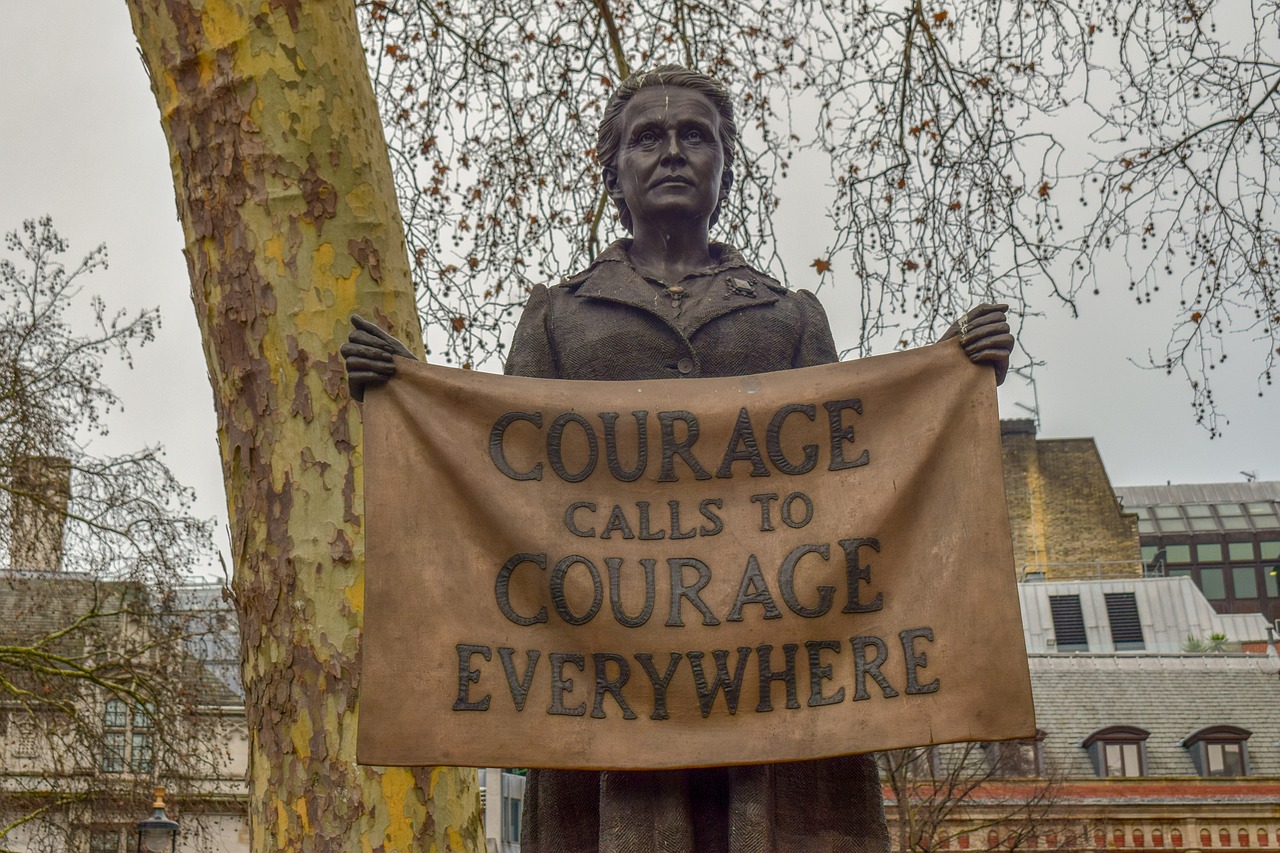
John Locke and Social Contract Theory
John Locke, a pivotal figure in the realm of political philosophy, introduced the concept of the social contract in a way that fundamentally reshaped our understanding of government and individual rights. His ideas emerged during the Enlightenment, a time when thinkers began to challenge traditional authority and advocate for reason and individualism. Locke's social contract theory posits that a government's legitimacy derives from the consent of the governed. This means that individuals agree to form a society and establish a government to protect their natural rights—namely, life, liberty, and property.
Locke believed that in a state of nature, individuals possess these rights inherently. However, the absence of a structured society can lead to conflicts and the infringement of these rights. To avoid such chaos, people willingly enter into a social contract, relinquishing some of their freedoms in exchange for the protection of their remaining rights. This mutual agreement forms the foundation of a civil society, where the government’s primary role is to safeguard the rights of its citizens.
One of Locke's most significant contributions to political thought is his emphasis on natural rights. He argued that these rights are not granted by any government but are inherent to every individual. This radical notion laid the groundwork for modern democracy and human rights. Locke asserted that if a government fails to protect these rights or acts against the interests of the people, citizens have the right to revolt and establish a new government that will uphold their rights. This idea of the right to rebellion is a cornerstone of democratic thought and has inspired countless movements for freedom and justice throughout history.
Locke’s theories also extend to the concept of limited government. He believed that the power of the government should be constrained to prevent tyranny and protect individual freedoms. This notion directly influenced the development of constitutional democracies, where the powers of government are defined and limited by law. Locke's vision of government as a protector of rights rather than a ruler of people resonates strongly in contemporary political discourse.
| Key Concepts of Locke's Social Contract Theory | Description |
|---|---|
| Natural Rights | Inherent rights to life, liberty, and property that exist in the state of nature. |
| Consent of the Governed | Legitimacy of government arises from the agreement of the people it governs. |
| Right to Revolt | Citizens can overthrow a government that fails to protect their rights. |
| Limited Government | Government powers should be restricted to protect individual freedoms. |
In conclusion, John Locke's social contract theory not only revolutionized political philosophy but also laid the groundwork for modern democratic systems. His ideas about natural rights, the role of government, and the importance of consent continue to influence contemporary discussions on governance and individual liberties. Understanding Locke's contributions is essential for anyone interested in the foundations of political thought and the ongoing evolution of democratic ideals.
- What is the social contract theory? The social contract theory is the idea that individuals consent to form a society and establish a government to protect their rights and maintain order.
- What are natural rights according to Locke? Natural rights are fundamental rights that every individual possesses, including life, liberty, and property, which should be protected by the government.
- What happens if the government violates the social contract? If a government fails to protect the rights of its citizens, Locke argues that the people have the right to revolt and establish a new government.
- How did Locke influence modern democracy? Locke's ideas about consent, natural rights, and limited government have been foundational in shaping democratic principles and constitutions around the world.

Modern Political Ideologies
In today's world, political ideologies shape our societies, influencing everything from government policies to individual rights. These ideologies are not just abstract concepts; they are the lenses through which we view our responsibilities as citizens and our expectations from the state. Understanding modern political ideologies is crucial for anyone wishing to engage meaningfully in political discourse. Let's dive into some of the most significant ideologies that dominate contemporary discussions.
At the heart of modern political thought lies liberalism, which champions individual rights and personal freedoms. This ideology argues that every person should have the liberty to pursue their own happiness, provided they do not infringe on the rights of others. Liberalism promotes limited government intervention in the lives of citizens, advocating for democratic processes to ensure that individual liberties are safeguarded. Imagine a world where your voice matters, where your choices are respected—this is the essence of liberalism.
On the other hand, we have socialism, a political ideology that seeks to address economic inequalities. Socialists argue that wealth should not be concentrated in the hands of a few but should be distributed more equitably among all citizens. This ideology promotes collective ownership of resources and advocates for social welfare programs that aim to uplift the disadvantaged. Think of socialism as a safety net, ensuring that no one falls through the cracks while pursuing their dreams. While it challenges the capitalist structures that often lead to inequality, it also raises important questions about the role of the state in managing economic resources.
Another significant ideology is conservatism, which emphasizes tradition, stability, and the importance of established institutions. Conservatives often argue that change should be approached cautiously, valuing the lessons learned from history. They believe that societal norms and values are essential for maintaining order and continuity. This ideology can be likened to a sturdy tree that has weathered many storms; it stands firm, rooted in its beliefs while adapting to the changing environment around it.
Lastly, we cannot overlook feminism, a movement that seeks to achieve equality between the sexes. Feminist ideologies challenge the traditional power dynamics that have historically marginalized women. They advocate for equal rights in all spheres of life, from the workplace to the home. Feminism is not just about women; it’s about creating a society where everyone, regardless of gender, has equal opportunities to thrive. It's a call for a more just and equitable world.
To summarize these ideologies, let’s take a look at the following table:
| Ideology | Key Focus | Core Beliefs |
|---|---|---|
| Liberalism | Individual Rights | Protection of personal freedoms, limited government intervention |
| Socialism | Economic Equality | Collective ownership, social welfare programs |
| Conservatism | Tradition and Stability | Value of history, cautious approach to change |
| Feminism | Gender Equality | Equal rights for all genders, challenging traditional power dynamics |
Understanding these ideologies is vital for navigating the complex landscape of modern politics. Each ideology offers unique insights into governance, rights, and the role of the state in society. As we engage in political discussions, it's essential to recognize the values and beliefs that underpin these ideologies, as they shape our collective future.
- What is the main difference between liberalism and socialism?
Liberalism focuses on individual freedoms and limited government, while socialism emphasizes economic equality and collective ownership. - How does conservatism view change?
Conservatism advocates for a cautious approach to change, valuing tradition and stability over rapid transformation. - What role does feminism play in modern politics?
Feminism seeks to achieve gender equality and challenges the traditional power dynamics that marginalize women.

Liberalism and Individual Rights
Liberalism is a political ideology that champions the protection of individual rights and freedoms as its core principle. Imagine a world where you can express your thoughts freely, pursue your dreams without undue interference, and live your life as you see fit. That’s the essence of liberalism! At its heart, this ideology argues for a limited government that respects personal liberties while ensuring that everyone has a fair chance to succeed. In liberal thought, the role of the state is not to dictate how individuals should live their lives but to create an environment where everyone can thrive.
One of the key tenets of liberalism is the belief in the social contract. This concept suggests that individuals consent to form a society and establish a government to protect their rights. In return, they agree to abide by certain rules and regulations that ensure the well-being of the community. This idea is pivotal because it lays the groundwork for democratic governance, where the authority of the government stems from the consent of the governed. Without this consent, any exercise of power is deemed illegitimate.
Moreover, liberalism places a strong emphasis on human rights. These rights are considered universal and inalienable, meaning they cannot be taken away or surrendered. They encompass a range of freedoms, including:
- Freedom of speech and expression
- Right to privacy
- Freedom of religion
- Right to a fair trial
These rights are not just abstract concepts; they have real implications for how societies function. For example, the protection of free speech allows for open debates and discussions, fostering a vibrant public sphere where ideas can be exchanged and challenged. This is crucial for the progress of society as it encourages innovation and change.
However, liberalism is not without its challenges. Critics argue that an overemphasis on individual rights can lead to a neglect of collective responsibilities. They contend that while personal freedoms are important, they should not come at the expense of community well-being. This brings us to the ongoing debate within liberal thought about the balance between individual rights and social responsibilities. How do we ensure that one person's freedom does not infringe upon another's? This question remains central to discussions on governance and ethics in contemporary society.
In conclusion, liberalism serves as a foundation for modern democratic societies, advocating for the protection of individual rights while navigating the complexities of community and governance. Its principles continue to influence political discourse and shape our understanding of what it means to live in a free society.
- What is the main focus of liberalism?
Liberalism primarily focuses on protecting individual rights and freedoms while advocating for limited government intervention in personal lives. - How does liberalism influence modern democracies?
Liberalism has shaped democratic principles by emphasizing the importance of consent from the governed and the protection of human rights. - What are some criticisms of liberalism?
Critics argue that an excessive focus on individual rights can lead to neglect of collective responsibilities and social welfare.

Socialism and Economic Equality
Socialism is a political and economic ideology that seeks to address the disparities created by capitalism through the promotion of economic equality. At its core, socialism advocates for the collective or governmental ownership of the means of production, which includes everything from factories to natural resources. This approach aims to distribute wealth more equitably among all members of society, rather than allowing a small percentage to control the majority of resources.
One of the fundamental beliefs of socialism is that every individual should have access to basic needs such as healthcare, education, and housing, regardless of their economic status. This principle stems from the idea that a society can only truly thrive when all its members have the opportunity to succeed. By prioritizing social welfare, socialism challenges the notion that economic success should be solely tied to individual effort and competition.
To illustrate the impact of socialism on economic equality, consider the following table that compares key aspects of capitalism and socialism:
| Aspect | Capitalism | Socialism |
|---|---|---|
| Ownership | Private ownership of resources | Collective or state ownership of resources |
| Wealth Distribution | Unequal, based on market forces | More equitable, based on needs |
| Economic Motivation | Profit-driven | Community-focused |
| Role of Government | Limited intervention | Active role in regulating and providing services |
While socialism aims to create a more equitable society, it is not without its criticisms. Opponents argue that it can lead to inefficiencies and a lack of innovation, as the profit motive is diminished. They contend that without the incentive to compete, productivity may suffer. However, supporters of socialism argue that the benefits of economic equality and social welfare far outweigh these potential downsides.
Moreover, socialism can take various forms, from democratic socialism, which seeks to combine democratic governance with socialist economics, to more authoritarian regimes that impose socialist principles without public consent. This diversity within socialism can lead to different outcomes in terms of economic equality and individual freedoms. The debate continues on the best approach to achieving a fair and just society.
In conclusion, socialism presents a compelling argument for economic equality by advocating for the collective ownership of resources and prioritizing the needs of the community. As societies grapple with the challenges of inequality and injustice, the principles of socialism offer a framework for rethinking how we allocate resources and support the well-being of all citizens.
- What is socialism? Socialism is an economic and political system that emphasizes collective or governmental ownership of the means of production and aims to reduce economic inequality.
- How does socialism differ from capitalism? While capitalism focuses on private ownership and profit motives, socialism prioritizes collective ownership and equitable distribution of resources.
- What are the benefits of socialism? Benefits include reduced economic inequality, access to basic needs for all citizens, and a focus on community welfare over individual profit.
- Are there different types of socialism? Yes, socialism can vary widely, including democratic socialism, which combines political democracy with social ownership, and more authoritarian forms.
Frequently Asked Questions
- What is the main focus of political philosophy?
Political philosophy primarily explores the fundamental questions surrounding government, justice, rights, and the role of individuals within society. It investigates the theories that shape political systems and helps us understand our civic duties and responsibilities.
- Who are some key theorists in political philosophy?
Notable political philosophers include Plato, Aristotle, Machiavelli, and John Locke. Each of these thinkers has made significant contributions to political thought, influencing modern discussions about governance, ethics, and human rights.
- What is Plato's view on justice?
Plato's theory of justice emphasizes the importance of virtue and the ideal state. He believes that a just society is one where individuals perform their roles according to their abilities and knowledge, contributing to the overall harmony of the community.
- How does Aristotle's political theory differ from Plato's?
While Plato focuses on the ideal state and virtue, Aristotle's political philosophy centers around the concept of the good life and the state's role in achieving it. He advocates for a mixed government and highlights the significance of civic participation in political life.
- What is Machiavelli's perspective on politics?
Machiavelli offers a realist perspective on politics, stressing the importance of power and the often harsh realities of political life. His pragmatic approach challenges idealistic views, promoting a more grounded understanding of political dynamics.
- What is John Locke's social contract theory?
Locke's social contract theory posits that governments derive their authority from the consent of the governed. His ideas on natural rights and limited government have significantly shaped democratic thought and the principles of modern governance.
- What are the main ideas behind liberalism?
Liberalism emphasizes the protection of individual rights and freedoms, advocating for minimal government intervention. It underscores the importance of democratic processes in safeguarding personal liberties and promoting social justice.
- How does socialism address economic inequality?
Socialism seeks to reduce economic inequality through collective ownership and social welfare programs. It challenges capitalist structures, promoting the idea that wealth should be distributed more equitably among citizens to ensure a fairer society.

